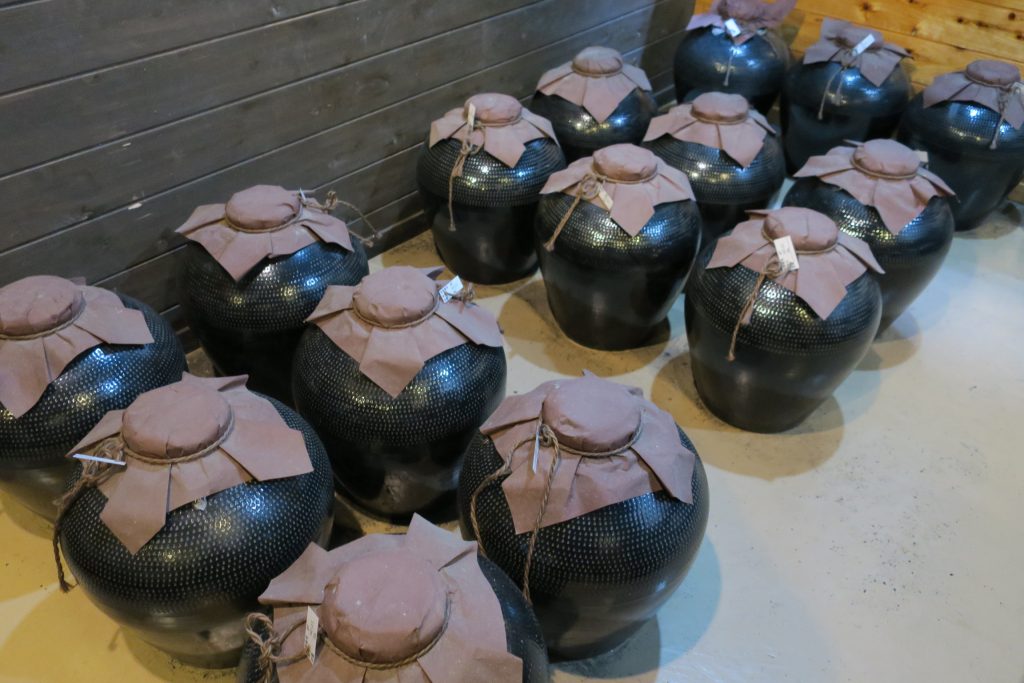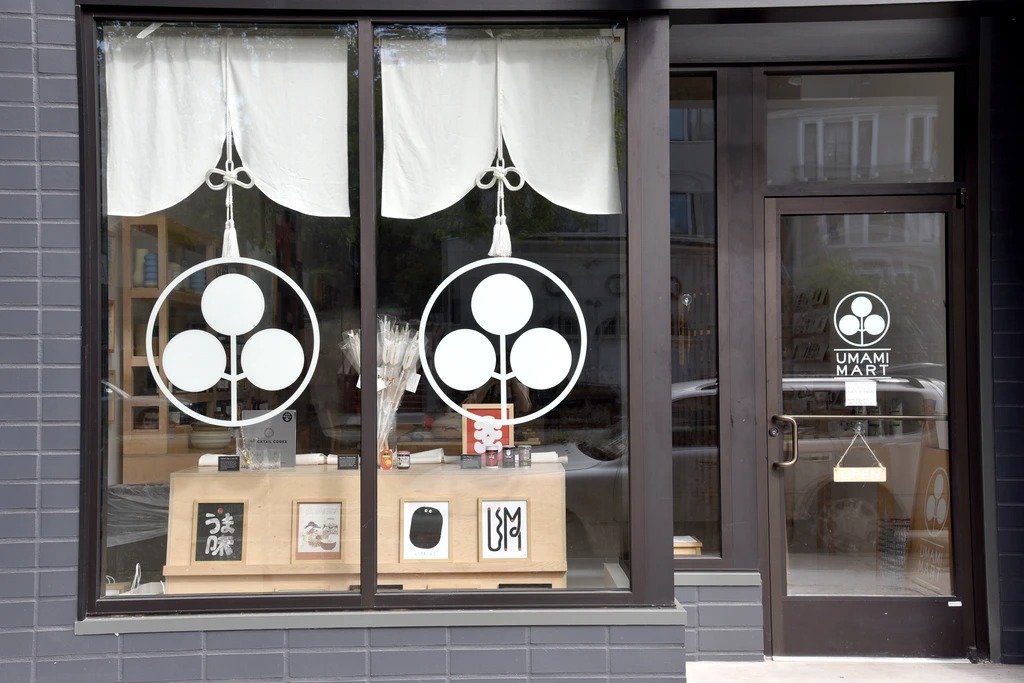Umami Mart’s Shochu Gumi Club
Exploring the world of this distilled spirit, with origins tracing back to the 16th century in Japan

Once a food and drink blog that transformed into an online shop and brick-and-mortar bar, Oakland-based Umami Mart—founded by Kayoko Akabori and Yoko Kumano—centers on functional design, kitchen accessories, barware, food and beverages. Umami Mart’s ever-growing selection of shochu, and Akabori and Kumano’s interest in learning more, inspired them to write about the distilled spirit (most commonly made from barley, rice or sweet potato) and to launch their Shochu Gumi club.
Members receive two bottles of shochu (oftentimes labels that are difficult to find in the US) each quarter, accompanied by tasting notes, food pairing suggestions and invitations to special events. Already with 200+ members nationwide since its December launch, the Shochu Gumi club is available as a quarterly or yearly subscription. “As niche as shochu is right now, there is a lot of opportunity for this category to grow and we already have a nice little crew of shochu enthusiasts,” Akabori tells us. Members also receive discounts, early access to premium bottles and a copy of Sake + Shochu Talk by Akabori and Kumano.

Akabori thoughtfully selects bottles for the club, and this season tells the story of barley. The box arrives with two Yatsushika Brewery shochu—both of which have limited distribution in Yufuin (a small onsen town in Oita Prefecture) and the United States. Yatsushika Brewery distills their Yufuin White Label with La Trobe barley from Australia, revealing hints of vanilla, licorice, lychee, and taffy. They make Yuifuin Black Label with vacuum-distilled Mugi barley aged for three years in bourbon barrel casks that add notes of caramel, toffee and chocolate. These examples of shochu, distilled from the same grain, show some of the diversity of the spirit.

“What sets shochu apart from other spirits, like vodka for example,” Akabori tells us, “is that it’s made with koji—a mold that grows on rice, used to also make sake, soy sauce, and miso.”
With its origin traces back to 16th century Japan, shochu was traditionally made using the kasutori method and distilling techniques have been handed down through generations. A Kura Toji (shochu master) controls every aspect of brewing, fermenting and distillation. Despite the immense attention to detail, Akabori explains it’s a beverage not saved for formal occasions, “Shochu is an artisanal drink that is popular all over Japan at izakayas, well-known to pair with pub food. It’s traditional to drink shochu from ceramic cups, alongside a meal. The versatility of shochu is incredible. It’s commonly enjoyed on the rocks, [and known as] mizuwari with ice water, or oyuwari with hot water.”

Umami Mart currently stocks more than four dozen shochu, and Akabori and Kumano are dedicated to learning and acquiring more. The duo has visited distilleries on the island of Kyushu—from Tori Kai for their rice shochu to Shiranami for sweet potato shochu, and Kitaya Sake Brewery in Fukuoka to experience the many spirits they make, including whiskey, sake and shochu distilled from white rice, green tea, and sweet potatoes steamed in clay pots.

At the Takahashi Shuzo distillery in Hitoyoshi, they saw where the Kuma river runs though the charming village with the lush forests. They tasted shochu made in partnership with chef Nakazawa-san of Sushi-sho Yotsuya Tokyo. This iteration was crafted to be paired with sushi, and used a local rice and combined three ginjo yeasts to create a shochu that emulates the body and aroma of sake. Akabori describes a “floral bubblegum nose from the ginjo yeast with lactic notes that end with a hint of cedar and savoriness. Definitely drink this one on the rocks and let it open up.”

Kumano and Akabori are looking forward to reopening their Umami Mart bar, where they offer more than 20 different shochu by the glass, alongside their sake and cocktails. For now, they have an on online shop for delivery and curbside, contact-free pick-up. Of course, their website is filled with fascinating information about the products. And, as for the Shochu Gumi club, memberbship remains open.
Images courtesy of Umami Mart












